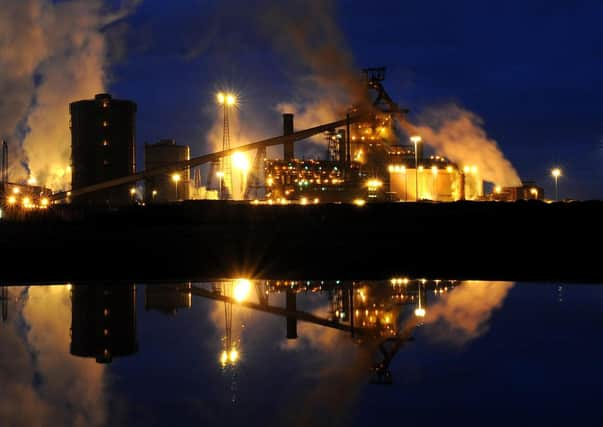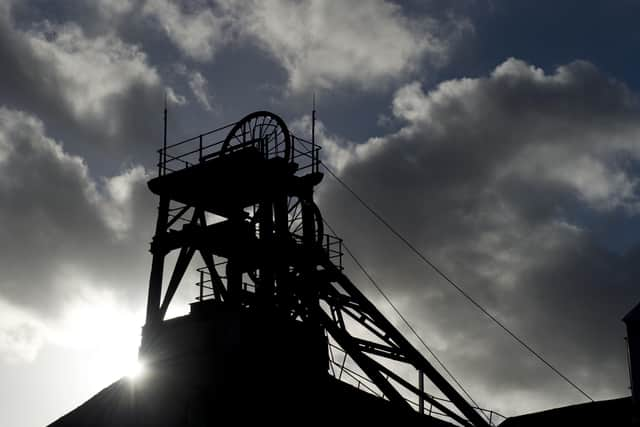Why we must still safeguard our steel industry – Jacob Young


Both my grandads worked in our steel industry and my grandad Matty actually helped in the construction of the Angel of the North.
I remember he would tell us that his signature was on the left wing – I am sure there is a joke in there somewhere.
Advertisement
Hide AdAdvertisement
Hide AdMy dad worked in our chemical industry, starting out as a plant cleaner for ICI – Imperial Chemical Industries – and then getting a job as a process operator. I followed in his footsteps as an apprentice and then as an operator myself.


That is not an unfamiliar story to many across Teesside and the North-East. Young lads would follow their dads into industry or down the pit.
However, the decline in our industry and the closure of many of our coal mines has meant fewer and fewer people have that connection with previous generations.
It is incredibly important that we debate the future of coal as we embark on our green recovery, because we have an opportunity for a green industrial revolution that could mean jobs coming back to areas like mine.
Advertisement
Hide AdAdvertisement
Hide AdHow we shape the transition to that and to net zero will determine whether jobs come back or whether industry will be forced overseas for good.
Redcar and Cleveland do not share the proud coalmining history of other parts of the region.
However, we do have a proud history of ironstone mining and steelmaking. Of course, coal and steel go hand in hand.
The production of steel through a traditional blast furnace requires coal, specifically coking coal.
Advertisement
Hide AdAdvertisement
Hide AdAlthough Redcar no longer has a blast furnace, as a Government we must remain committed to the future of steel blast furnaces in the UK until electric arc furnaces can make the equivalent level of steel.
I was incredibly grateful, as were my constituents who work at British Steel at Lackenby, that the Government stepped in and supported British Steel last year in the protection of its blast furnaces at Scunthorpe until a new buyer could be found.
Obviously, we now face new concerns about the future of the steel industry in Wales and whether it will have blast furnaces in the long term.
It is my belief, as it was in Redcar in 2015, that we should do all we can to help the industry to save our steel.
Advertisement
Hide AdAdvertisement
Hide AdLosing it will not only lead to many job losses; it would be to the detriment of our flexibility and independence.
I also think it is important to have a sovereign capability in these foundation industries, were the worst to happen and we found ourselves defending our country.
As long as we have steelmaking in the UK, or rather as long as we have blast furnaces creating steel in the UK, we must have a plan for coal.
That is to say nothing of glass manufacturing, cement or bricks.
Advertisement
Hide AdAdvertisement
Hide AdThese crucial industries all rely on coal and we must look at ways of producing or obtaining coal with a more limited impact on the environment.
In 2019, we imported 6.5 million tonnes of coal, mainly from Russia. That accounted for 73 per cent of the UK’s supply. That proportion was already down by 36 per cent compared to 2018.
However, it is clear that there is more we can do to increase coal production in the UK. We should not shy away from that. Too much of our language focuses on eliminating the use of carbon-emitting fuels, rather than reducing their impact.
The whole premise of net zero by 2050 is a journey to reduce our carbon emissions, not eliminate all carbon-emitting fuels. If we can open a new coalmine in the UK, far from being against our environmental goals it will aid them: first, through the quasi-elimination of pollution generated by transport – most of our coal currently arrives from Russia – and, secondly, through the higher environmental standards imposed on production in the UK.
Advertisement
Hide AdAdvertisement
Hide AdThat does not give us a free pass, however. As part of the transition to net zero, we must continue to phase out coal in the industries that do not depend on it. I am incredibly proud of the Government’s achievements on phasing out coal and implementing our long-lasting change to the energy industry.
Jacob Young is the Conservative MP for Redcar. He spoke in a Parliamentary debate on coal mining – this is an edited version.
Support The Yorkshire Post and become a subscriber today. Your subscription will help us to continue to bring quality news to the people of Yorkshire. In return, you’ll see fewer ads on site, get free access to our app and receive exclusive members-only offers. Click here to subscribe.
Comment Guidelines
National World encourages reader discussion on our stories. User feedback, insights and back-and-forth exchanges add a rich layer of context to reporting. Please review our Community Guidelines before commenting.